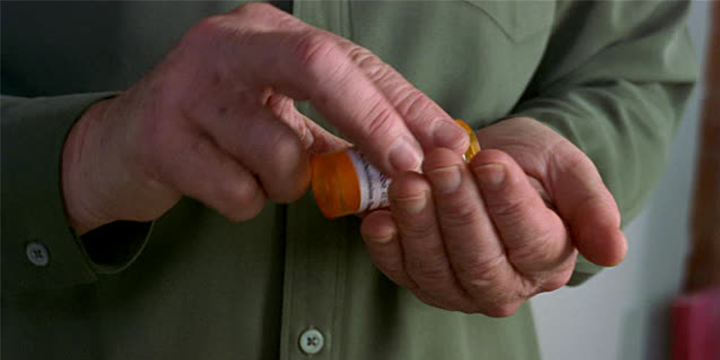Modern medicines have contributed to longer life spans, improved health and better quality of life. Medications are the most common treatment for many diseases and conditions seen in older people and persons with chronic diseases and disabilities. Medicines now not only treat and cure diseases that were untreatable just a few years ago, they aid in the early diagnosis of disease; prevent life-threatening illnesses; relieve pain and suffering; and allow people with terminal illnesses to live more comfortably during their last days.
Cerebral capacity generally diminishes with aging due to a loss of neurons and decreased cerebral blood flow. This affects ‘fluid intelligence’— the capacity to think theoretically and to see relationships across topics. The decline in abstract thinking is understated, steady, and varied among individuals. Prolonged processing time, after-imaging (fixating on a word or idea after the other person has moved on to another topic), limited short-term memory, and ‘test anxiety’.
Humiliation, physical, emotional and psycho social issues that are difficult to deal with can affect the elder’s ability and enthusiasm to learn. TriBeCa Care’s care givers, armed with knowledge about such changes and skilled in appropriate teaching strategies, are able to help older patients become successful learners and more satisfied partners in care.
It is first important to understand how a number of alterations in vision, hearing and touch can reduce an elderly patient’s capability to learn or perform tasks of self-care.
- Eyesight: A patient’s visual acuteness may have diminished markedly with time and age. Typically, the lens of the eye becomes less expandable, the cornea more translucent, and the pupil smaller. Older patients see best by the light of bright bulbs and respond poorly to dim lighting, and they don’t deal well with glare. Peripheral vision may narrow. Vision in the elderly may also be impaired by remedial eyewear that is no longer sufficient. In addition, a cataract can cause the lens to become opaque and yellow, affecting color perception. Retinal changes may cause elderly patients to experience problems with metallic and cool colors. They may, for example, have decreased blue, green, and violet color vision. As a result, patients may not be able to differentiate between the different colours of their pills or capsules. A blue pill, for example, may appear faded green or gray.
- Audible range: Older people experience changes in both the conductive and neural components of the ear. In other words, it is more difficult for the elderly to hear sounds that are higher in pitch, to tell what direction a sound is coming from, and to screen out background noise. This is because the eardrum becomes less flexible and thus vibrates less. The cochlea and the eighth cranial nerve deteriorate, so less sensory information gets to the brain.
- Touch: Elderly patients may have a diminished sensitivity to pressure, temperature, and texture. As a result, they may have difficulty handling papers or booklets that are very slick in texture; they may drop things more easily.
When not used appropriately, effectively and safely, medications can have devastating consequences.
When not used appropriately, effectively and safely, medications can have devastating consequences. Armed with this understanding, it is now proven that for older adults and people with disabilities, medications—prescription, over-the-counter, social drugs such as alcohol, and herbal remedies/alternative medicines—can be a double-edged sword.
At TriBeCa Care, we recognize that the changes that occur with aging and disability make people more likely to suffer medication-related problems (MRPs). Nevertheless, research has shown that medication-related problems are often preventable. Caregivers play a key role in helping to identify when an actual or potential MRP is occurring. This assistance can help prevent the costly and unwanted negative consequences of medication use, such as admission to acute care hospitals, assisted living facilities or nursing homes. About one quarter of all nursing home admissions are due at least in part to the inability to take medication correctly.
TriBeCa Care’s caregivers help the elderly manage medications. Our caregivers for people with Alzheimer’s disease and other memory impairments commonly report problems with getting the patients take medications on time, in the right amount, and as directed. TriBeCa Care’s caregivers’ knowledge of their patients’ medications—intended uses, directions for use, side effects, possible interactions—is greater than that of the care recipients themselves.
When patients, caregivers, doctors and pharmacists function as a team, medication-related problems can be avoided, contributing to better outcomes and improved daily functioning. At TriBeCa Care, we believe in making this a reality.
If you need further help or advice, give us a call. TriBeCa Care is happy to be by your side. Request a callback or Call us at + 913366064208.
Email us at enquiry@newwpsite.tribecacare.com
Image source: Getty Images

